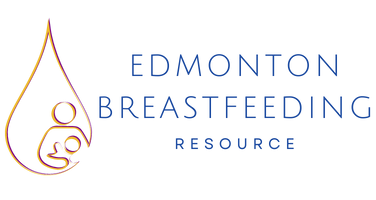Tongue-tie (ankyloglossia)
Tongue-tie (ankyloglossia) is a controversial and under-researched topic, in the already under-researched area of breastfeeding. Due to this lack of evidence-based-information, there are a wide variety of approaches to the diagnosis and treatment of ankyloglossia. This page will provide you with information to explore regarding breastfeeding issues possibly related to tongue-tie. It is important that you are fully informed prior to deciding on interventions, especially the surgical intervention of frenotomy (aka tongue tie clipping). These links can provide a starting point for information and are not meant to lead you specifically towards any particular practitioner or intervention.
Physician
It is important to rule out other oral anomalies that may be causing breastfeeding difficulties. A thorough intraoral examination, including inspection of the tongue and its function, should be performed in newborns, particularly when there are feeding difficulties. The parent should then be interviewed regarding breastfeeding (latch, nipple pain, discomfort) and the feeding observed. If difficulties are identified, referral to a health care provider with experience in breastfeeding support should be considered.
- Canadian Pediatric Society
Things to consider when seeking advice about tongue function & breastfeeding from a physician:
- Was a full feeding assessment completed, including observing the feed?
- Did they do a functional assessment of the baby's tongue, versus noting only the appearance of the tongue?
- Do they have additional training in breastfeeding assessment?
- If no diagnosis was made, were they able to help you with your feeding concerns? Or did they refer you to an IBCLC or breastfeeding clinic?
Ibclc (lactation consultant)
An IBCLC “provides expert breastfeeding and lactation care.” Some IBCLCs hold other designations such as medical doctor (MD), nurse practitioner (NP), or registered nurse (RN), but these additional designations are not required. An IBCLC who does not hold another designation that allows them to make a diagnosis is not permitted to diagnose a tongue-tie. An IBCLC can do a comprehensive breastfeeding assessment, including oral examination of baby. They can describe observations and effects on feeding. For best practice, they should refer you to a diagnosing practitioner if tongue-tie is suspected. Your lactation consultant should be a verified IBCLC if they are discussing tongue function and treatment options.
Despite being unable to make a diagnosis, IBCLCs have expert clinical knowledge about tongue function related to breastfeeding and will be able to provide ongoing assessment and support to help you reach your breastfeeding goals while working in complement with other practitioners who are helping you. When exploring a potential diagnosis of tongue-tie, an IBCLC is an important member of your health care team.
Things to consider when seeking advice about tongue function & breastfeeding from a lactation consultant:
- Was a full feeding assessment completed, including observing the feed?
- Did they do a functional assessment of the baby's tongue, versus noting only the appearance of the tongue?
- Do they refer you to a medical provider who can make a diagnosis? Or discuss their observations in relation to tongue-tie symptoms?
- Can they help you with symptoms as you determine the next course of action?
Dentist
The AAPD recognizes that causes other than ankyloglossia are more common for breastfeeding difficulties and that, while frenulotomy for an infant with ankyloglossia can lead to an improvement in breastfeeding, not all infants with ankyloglossia require surgical intervention. Due to the broad differential diagnosis, a team-based approach including consultation with other specialists can aid in treatment planning.
Things to consider when seeking advice about tongue function & breastfeeding from a dentist:
- Was a full feeding assessment completed, including observing the feed?
- Did they do a functional assessment of the baby's tongue, versus noting only the appearance of the tongue?
- Do they have additional training in tongue-tie related to breastfeeding?
- What is their follow up plan?
- Do they measure outcomes from previous patients?
- What is the price of the procedure? Can it be covered under benefits?
Bodywork
Bodywork : therapeutic touching or manipulation of the body by using specialized techniques
- Merriam Webster Dictionary
Bodyworkers can include practitioners in the areas of physiotherapy, chiropractic, osteopathy, craniosacral therapy, massage, orofacial myology, and others. In relation to tongue function and deciding on a treatment plan for improving breastfeeding, sometimes bodywork will be recommended to see if enough improvements can be made to avoid surgical intervention, or to help relieve body tension in a way that helps to support intended outcomes of a frenotomy procedure. Each field of bodywork will have their own interpretation of how they can help to identify and improve an infant’s body and tongue function in relation to breastfeeding. Sometimes these claims are not recognized or supported in the realm of conventional medicine, which can cause confusion for families. These therapies are not covered by Alberta Health Care, which can limit their accessibility.
Infants who have undergone a difficult birth process (forceps, vacuum, long pushing stage, extended labor, breech, etc) may present with difficulty latching or less than ideal tongue function that might initially look like a tongue -tie. Some families choose to allow time for the baby to recover from the birth process, continue to work on breastfeeding, and, if needed, enlist the help of a bodyworker to address tension and imbalances that might be contributing to latching difficulties.
For families who have never explored these kinds of therapies, you may feel more comfortable sticking to the more traditional approaches such as physicians and physiotherapy. For families experienced with complementary therapies and open to their potential to help (or not), these types of therapies can provide low intervention methods for improving breastfeeding and recovery from birth.


